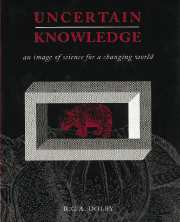Book contents
- Frontmatter
- Contents
- Preface
- 1 Introduction
- Part I The nature of science
- Part II Does science have distinctive qualities?
- Part III Changing science in a changing world?
- 10 What are acceptable variations of present science?
- 11 And in the long term?
- Appendix: Summary of cases of marginal and disputed science
- References
- Index
10 - What are acceptable variations of present science?
Published online by Cambridge University Press: 28 January 2010
- Frontmatter
- Contents
- Preface
- 1 Introduction
- Part I The nature of science
- Part II Does science have distinctive qualities?
- Part III Changing science in a changing world?
- 10 What are acceptable variations of present science?
- 11 And in the long term?
- Appendix: Summary of cases of marginal and disputed science
- References
- Index
Summary
Introduction
The nature of the practice of science is changing along with its content. In the past, the changes have been on a curve of continuing growth, as perceived successes are repeated and society finds new uses for science. In the present day, the main driving force is economic investment in science as an overhead on science-based technologies. As a result, knowledge creation is now mostly in the context of knowledge use. With the recent decline in its rate of expansion, science now grows too slowly for new component activities simply to be added to established ones. Change involves loss as well as addition. In addition to the practical limits to growth, the problems produced by sciencebased technologies are providing negative feedback. Science struggles to adjust itself to deflect criticism and loss of support.
Our understanding of science, then, should take into account its changing nature. The present-day preoccupation with short-term economic value is producing effects disliked by both scientists and their public. Should we, perhaps, try to influence the way science changes?
All the options involve change. We cannot move back. A more slowly changing pre-scientific society could not sustain the science-based technology on which our survival at present population levels depends. Since past science was always in a state of exponential growth, to keep science in its traditional form would involve it growing further in a society which cannot grow and change fast enough to accommodate it. To keep science as an activity without growth would change it into a more conservative practice, no longer affected by the influx of so many young people who have much to gain by challenging old dogmas.
- Type
- Chapter
- Information
- Uncertain KnowledgeAn Image of Science for a Changing World, pp. 247 - 293Publisher: Cambridge University PressPrint publication year: 1996



